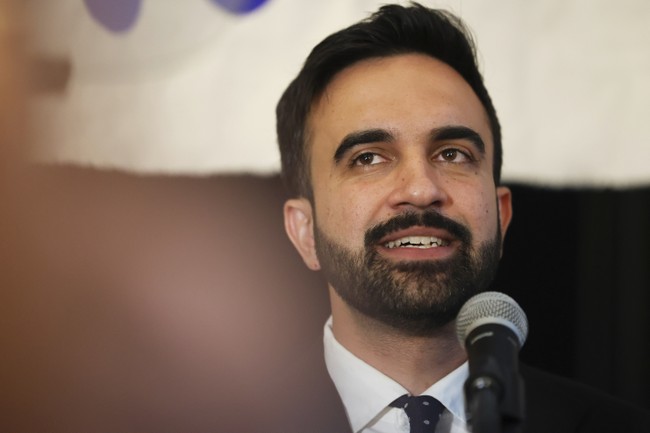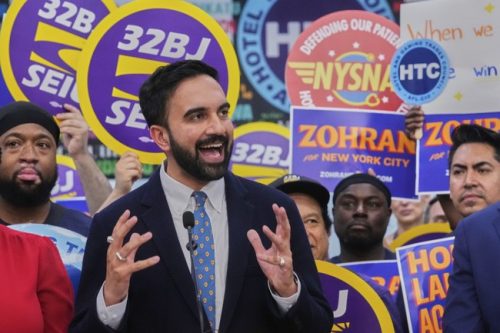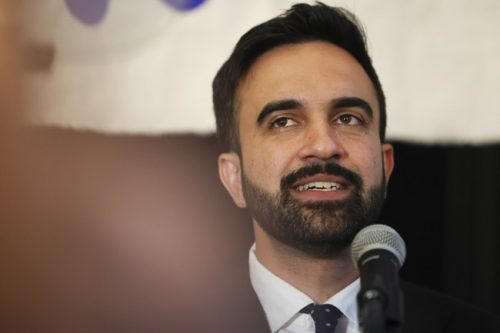Did the Socialist Win the NYC Mayoral Debate?
Did the Socialist Win the NYC Mayoral Debate?
The mainstream press insists Zohran Mamdani came out on top in the New York City mayoral debate, deflecting attacks and keeping his composure. They point to his energy and the absence of any big gaffes. If the early numbers are any guide, that claim deserves attention.
Mamdani’s performance looked polished, almost scripted for the moment, and he leaned into a progressive message that resonates with a specific urban base. His style — confident, media-savvy, and relentlessly on message — made it hard for opponents to land decisive blows. In a town where optics matter as much as policy, that matters a lot.
Polls after the debate show Mamdani holding more than a ten-point lead, a buffer that reshapes the dynamics in real time. Curtis Sliwa, the Republican, tried to disrupt that momentum but frequently found himself drowned out by Cuomo and Mamdani trading barbs. Sliwa’s interventions, though spirited, often redirected the spotlight away from Cuomo and toward Mamdani instead.
Curtis Sliwa slams Andrew Cuomo in NYC mayoral debate:
“You think you’re the toughest guy alive, you lost your own primary… you have a difficult understanding of what the term No is.” pic.twitter.com/3ILB9zYmiI
— Jaron Zhou (@ZhouJaron) October 17, 2025
Mamdani’s team clearly recognized the advantage and amplified Sliwa’s lines on X, turning a rival’s attacks into free advertising. That kind of rapid-response campaigning rewards chaos and punishes split opposition. The post-debate playbook favored the candidate already ahead in the polls.
Make no mistake: this is shaping up as a two-person race between Andrew Cuomo and Zohran Mamdani, not a three-way contest. Sliwa’s presence fragments a smaller but critical slice of voters who might otherwise coalesce around a single anti-Mamdani option. In a city where Democrats outnumber Republicans by seven to one, that fragmentation can hand the keys to city hall to a candidate with a clearly socialist bent.
Cuomo, meanwhile, never seemed to find a rhythm that connected with voters onstage; he came off more lawyerly than likable. Attempts to question Mamdani’s real-world experience were reversed quickly and awkwardly. That left Cuomo searching for a narrative that would change the race but failing to land it.
Even the NY Post conceded that Mamdani held his own. “Cuomo,” they said, didn’t “land any punches that shook the race up.” That line echoed across social feeds and pundit panels as a shorthand version of what many viewers took away from the event.
Cuomo’s record is complicated and, in many voters’ eyes, unproven in delivering the kind of reform-minded outcomes he promises. When an attack about experience gets flipped back onto the attacker, it highlights vulnerability more than strength. The only clean path to stopping a Mamdani victory, from a conservative perspective, is consolidating the non-socialist vote — something Sliwa’s continued candidacy makes much harder.
The stakes here are obvious: a socialist mayor in the nation’s financial capital would signal a political shift with consequences beyond symbolism. City governance requires coalition-building and pragmatic problem-solving; voters who worry about public safety, taxes, and economic growth see those skills as non-negotiable. A divided opposition hands leverage to the candidate best positioned to turn a plurality into a plurality-plus-win.
Watching the debate unfold, the tactical lesson is simple: energy and message discipline can outmatch traditional experience if the opposition cannibalizes itself. The outcome now depends as much on campaign mechanics and voter turnout as on a single debate performance. If the parties on the other side of Mamdani don’t adapt quickly, the result could be historic in ways many voters did not intend.
Editor’s Note: The Schumer Shutdown is here. Rather than put the American people first, Chuck Schumer and the radical Democrats forced a government shutdown for healthcare for illegals. They own this.






